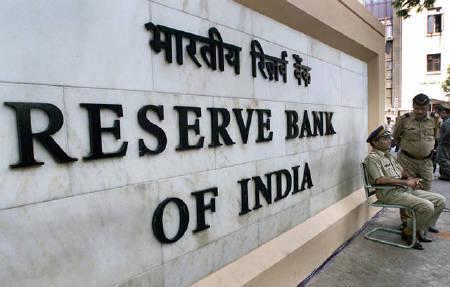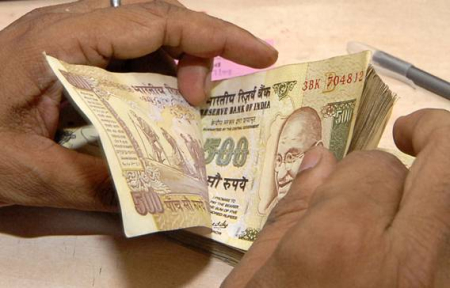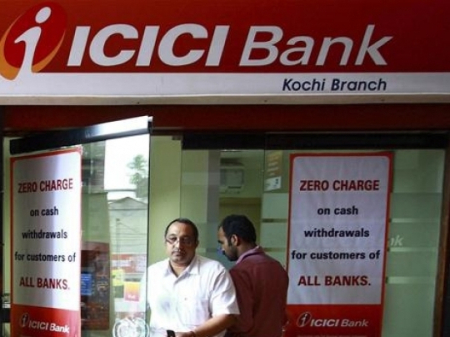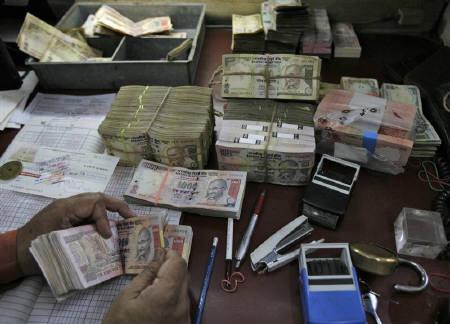 | « Back to article | Print this article |
RBI raises red flag over banks' foreign currency loans
The Reserve Bank of India has raised a red flag over banks' foreign currency loans to the Indian corporate sector, as data compiled by the regulator reveal only 40 per cent of their exposure has been hedged.
With the Indian currency depreciating 18.7 per cent in 2011, banks face the grim possibility of a chunk of the unhedged loans turning bad, as a fall in the value of the rupee will shrink the loan repayment capacity of companies.
According to RBI data, between August 5, 2011 and December 15, 2011, the rupee had depreciated by over 18 per cent, while volatility (as measured by the annualised standard deviation of daily percentage changes) nearly doubled from about five per cent to 12 per cent.
Click NEXT to read more...
RBI raises red flag over banks' foreign currency loans
The central bank raised its concern in a meeting with bankers on Tuesday.
"If hedging is not there, it is a risk," said a banker who attended the meeting. He also said some companies declined to hedge as they would incur additional cost.
However, bankers have told the RBI they will take stock of the position in their individual banks and insist their customers, who want to avail foreign currency loans, go for hedging. It is not mandatory for a firm to hedge its loans.
Indian companies with operations abroad have been relying heavily on Indian banks for funds in recent times.
Click NEXT to read more...
RBI raises red flag over banks' foreign currency loans
As a result, around 50 per cent of the funds raised by India Inc through external commercial borrowings are funded by Indian banks.
The figure was 30 per cent till a few years back. Banks have recently been very active in overseas fund-raising to support the Indian corporate sector's operations abroad.
A host of banks including ICICI Bank, Union Bank of India, IDBI Bank, and Syndicate Bank raised foreign currency loans in calendar year 2011.
Bankers were of the view that longer-term forward cover for the foreign exchange rate was not available and only short-term covers for three months, six months or at the most one year were available.
Click NEXT to read more...
RBI raises red flag over banks' foreign currency loans
The regulator, however, feels long-term forward foreign exchange hedging solutions can be easily customised by banks by choosing a rolling hedging strategy.
That involves simultaneous cancellation and rebooking of a short-term forward exchange contract until the desired long-term maturity.
Simultaneous cancellation and rebooking of forward contracts for rollover is exempted from the restrictions the RBI introduced on December 15, 2011 to reduce volatility in the foreign exchange market.
The central bank had announced a new set of guidelines that restricted rebooking of cancelled forward contracts by companies and reduced the net overnight open position limit or trading limits for banks in the foreign exchange market.
Click NEXT to read more...
RBI raises red flag over banks' foreign currency loans
During the second quarter review of the monetary policy in October, the regulator had said unhedged forex exposure of companies was a source of credit risk to financing banks.
It also said if the unhedged position was large, it could have serious consequences for the solvency of companies in the event of large depreciation of the home currency and could result in large credit losses to financing banks.
The RBI had mandated banks monitor and review the unhedged portion of the foreign currency exposures of large corporations whose total foreign currency exposure was more than $25 million on a monthly basis.
In the October policy, the RBI had proposed that while extending fund-based and non-fund based credit facilities to firms, banks should rigorously evaluate the risks arising out of unhedged foreign currency exposure and price them in the credit risk premium.





